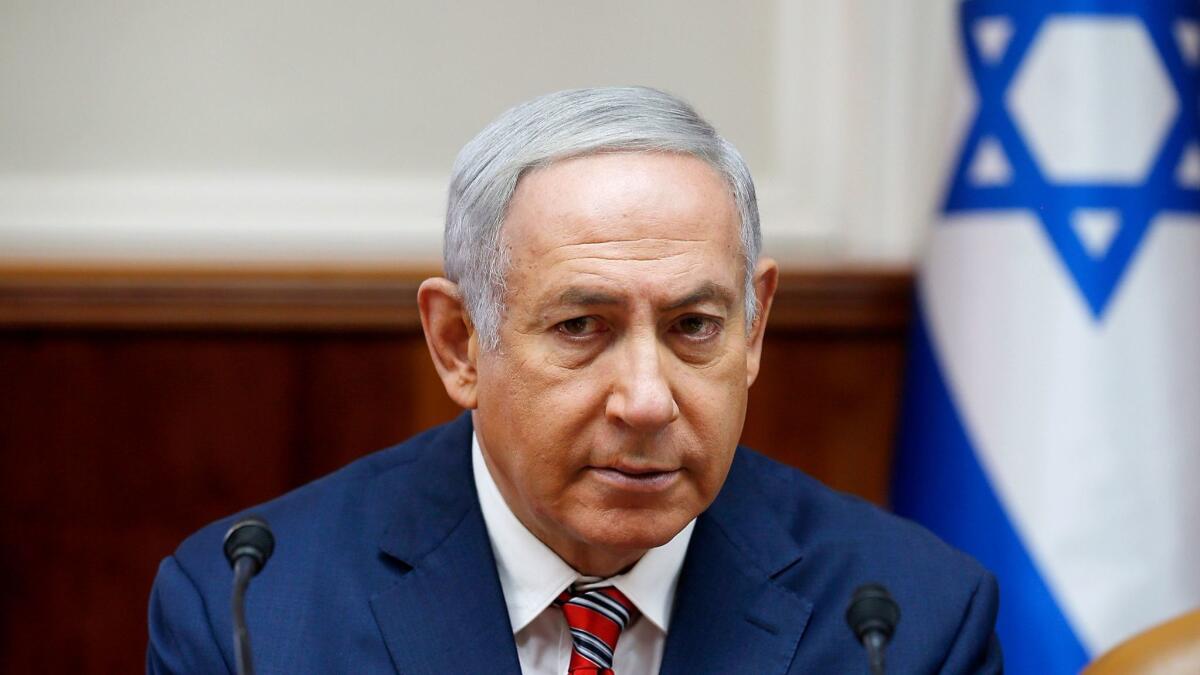Israel’s prime minister and Jordan’s king meet after months of strained relations

- Share via
Reporting from Amman, Jordan — Israeli Prime Minister Benjamin Netanyahu told Jordan’s King Abdullah II that he is committed to the status quo at holy sites in contested Jerusalem, trying to reassure the monarch in a rare meeting after months of strained relations.
They held talks in Jordan ahead of a visit to the region this week by two senior Trump administration officials who are trying to promote a plan for an Israeli-Palestinian deal on partitioning the Holy Land, including Jerusalem.
Details of the plan have not been released, but Palestinians fear they will get little more than a symbolic foothold in the holy city, after President Trump recognized Jerusalem as Israel’s capital late last year.
The Palestinians, who seek Israeli-annexed East Jerusalem as a future capital, have shunned contacts with U.S. officials since Trump’s policy shift on Jerusalem, a change that has also been rejected by Abdullah. Netanyahu refuses to relinquish any part of Jerusalem.
Jordan also has a stake in East Jerusalem, serving as the custodian of major Muslim and Christian shrines there. Jerusalem’s walled Old City, captured and annexed by Israel in 1967, is home to Muslim, Christian and Jewish holy sites.
Netanyahu’s office said the prime minister told Abdullah on Monday that Israel remains committed to the status quo of the holy sites in Jerusalem.
Abdullah told Netanyahu that the fate of Jerusalem must be determined in Israeli-Palestinian negotiations, and that a solution should be based on establishing a Palestinian state, with East Jerusalem as its capital, on lands Israel captured in 1967.
Palestinian officials fear the Trump administration plan will leave them with a mini-state in the Gaza Strip, parts of the West Bank and a foothold in Jerusalem. Palestinian Authority President Mahmoud Abbas has said he will reject any plan being floated by the Trump team, arguing that the United States has forfeited its role as mediator because of decisions seen as pro-Israel.
Trump’s son-in-law, Jared Kushner, and envoy Jason Greenblatt are visiting Israel, Egypt, Jordan, Qatar and Saudi Arabia this week to discuss the plan.
The Netanyahu-Abdullah meeting came after almost a year of strained relations. Last July, an Israeli guard at the Israeli embassy in Amman shot and killed two Jordanians, saying one, a teenager, had tried to attack him with a screwdriver and that a second person was hit in the crossfire.
Netanyahu arranged a hero’s welcome for the guard, angering the Jordanians. Abdullah lashed out at Netanyahu at the time, saying everyone in the kingdom was “infuriated” by what he called “unacceptable and provocative behavior,” presumably by Netanyahu.
Diplomatic relations were repaired only gradually, with a new Israeli ambassador recently moving into the embassy in Amman.
More to Read
Sign up for Essential California
The most important California stories and recommendations in your inbox every morning.
You may occasionally receive promotional content from the Los Angeles Times.













